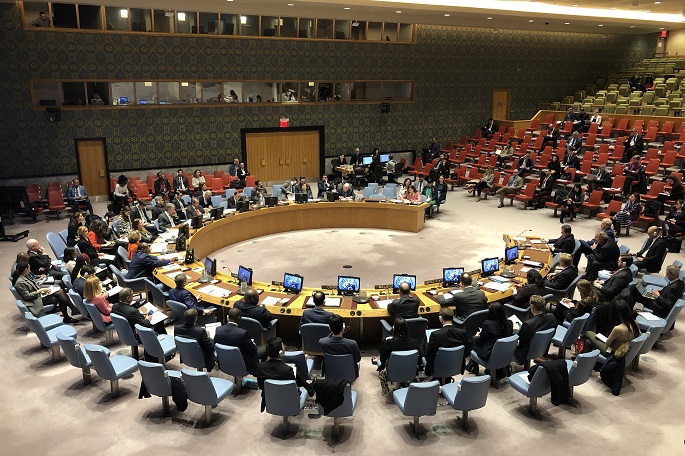"SC needs improvements on compliance with due process standards"
Published : 19 Feb 2019, 21:38
Updated : 19 Feb 2019, 21:40
The first counsellor of the Delegation of the European Union to the United Nations Eric Chaboureau on Tuesday said that it is needed for the UN Security Council to improve further compliance with due process standards when implementing sanctions.
Sanctions are an important tool under the UN Charter for ensuring the maintenance and restoration of international peace and security, and it is crucial that sanctions are implemented in full compliance with international human rights law, said Chaboureau, at a meeting of the Special Committee on the Charter of the UN and on the Strengthening of the Role of the Organization.
So by ensuring that, sanctions procedures are fair and clear and respect the rights of sanctioned persons, including due process rights such as the right to be informed and the right to an effective review of their designation, Chaboureau added, on behalf of the EU and its member states.
"In this regard, we underline the important role of the Ombudsperson to the ISIL (Da'esh) and Al-Qaida sanctions Committee and the need for the United Nations Security Council to improve further compliance with due process standards when implementing sanctions," he said.
EU welcomes growing awareness within the UN system of implementation issues and the addressing of these issues through further training, increased transparency and responsive sanctions committees providing guidance on implementation, the counsellor added.
Since 1966, the UN Security Council has established 30 sanctions regimes, and the measures have ranged from comprehensive economic and trade sanctions to more targeted measures such as arms embargoes, travel bans, and financial or commodity restrictions.
There are 14 ongoing sanctions regimes which focus on supporting political settlement of conflicts, nuclear non-proliferation, and counter-terrorism. Each regime is administered by a sanctions committee chaired by a non-permanent member of the Security Council. There are 10 monitoring groups, teams and panels that support the work of 11 of the 14 sanctions committees.
In the 2005 World Summit declaration, the UN General Assembly called on the Security Council to ensure that fair and clear procedures are in place for the imposition and lifting of sanctions measures. The establishment of the Office of the Ombudsperson to the ISIL (Da'esh) & Al-Qaida Sanctions Committee is an example of this approach in practice.


